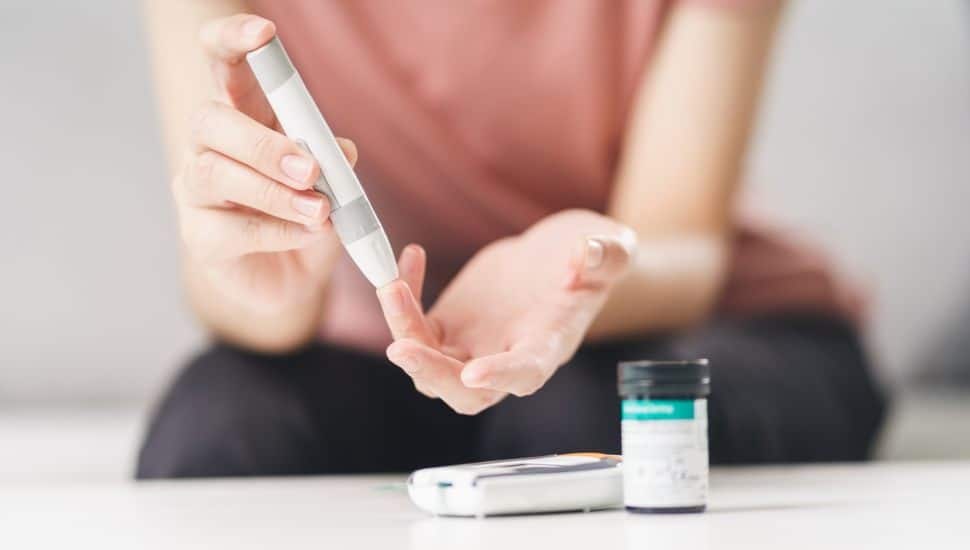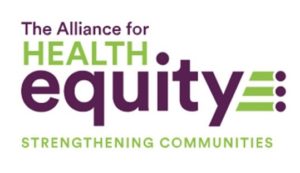Alliance for Health Equity Focuses Taking Action to Prevent Diabetes Health Problems

November is National Diabetes Month, and according to the National Institute of Diabetes and Digestive and Kidney Diseases at National Institutes of Health (NIH), “this year’s focus is on taking action to prevent diabetes health problems.” While diabetes is a nation-wide epidemic, an estimated 76,535 people in the state of Pennsylvania alone are diagnosed with diabetes each year. Here are more some more statistics on the burden of diabetes in Pennsylvania (from the American Diabetes Association):
- Approximately 1,162,598 Pennsylvanians have diagnosed diabetes.
- An estimated 303,000 have diabetes but don’t know it yet, greatly increasing their health risk.
- Another 3,484,000 have pre-diabetes, with blood glucose levels higher than normal but not yet high enough to be diagnosed as diabetes.
Type 1 & Type 2 Diabetes
There are two distinct types of diabetes: “type 1 diabetes and type 2 diabetes. According to UVA Health, they come from different causes. In diabetes type 1, the pancreas does not make insulin, because the body’s immune system attacks the islet cells in the pancreas that make insulin. In diabetes type 2, the pancreas makes less insulin than it used to, and your body becomes resistant to insulin. This means your body has insulin, but stops being able to use it.”
Both type 1 and 2 result in excess sugar in the bloodstream and can lead to life-threatening complications, per The Mayo Clinic. The young and old can be affected, however type 1 is commonly diagnosed in childhood while type 2 is more prevalent in adults. Genetics can be a risk factor for both, however, the Centers for Disease Control and Prevention (CDC) notes that, in many cases, you can lower your risk of type 2 diabetes through lifestyle changes.
Preventing Diabetes Health Problems
For National Diabetes Month 2023, the NIH has provided tips for preventing diabetes health problems through their Take Charge of Tomorrow campaign. Advice includes managing your blood glucose, blood pressure and cholesterol levels, planning healthy meals, being physically active, getting enough sleep and not smoking, taking prescribed medicines, maintaining a healthy weight, and taking care of your mental health and stress levels.
Improving Lives & Finding a Cure
According to the American Diabetes Association, “People with diabetes have medical expenses approximately 2.3 times higher than those who do not have diabetes,” with over $12 billion dollars spent on direct and indirect medical expenses in our state in 2017. In 2021, The Division of Diabetes Translation at the CDC provided $2,472,196 in diabetes prevention and educational grants in Pennsylvania and in 2023, the National Institute of Diabetes and Digestive and Kidney Diseases at the National Institutes of Health invested $17,716,058 in diabetes-related research projects in Pennsylvania to help combat this issue.
Currently, the US Government is working to lower the cost of insulin treatments, as well as funding diabetes research. In his 2023 Proclamation on National Diabetes Month, President Biden stated that diabetes “is a leading cause of death in the United States, and once diagnosed, increases one’s risk of heart attack, stroke, blindness, kidney failure, and loss of toes, feet, or legs… While this chronic condition is becoming more common, there is so much that we can do to help prevent and manage it. During National Diabetes Month, we recommit as a nation to making treatment more affordable, improving care, and finally finding a cure.”
Health Information, Access, & Insurance
At The Alliance for Health Equity, their mission is to advance a more equitable, resilient, and healthy Greater Coatesville community. As such, you can access health materials via our website, in both English and Spanish, with important information on where to get care, how to find a doctor, and how to secure insurance for Coatesville residents. Click here to view and download these helpful materials. It is also important to recognize the symptoms of both type 1 and type 2 diabetes, which can be accessed here through the CDC.
Learn more at the Alliance for Health Equity.
Connect With Your Community
Subscribe to stay informed!
"*" indicates required fields
























![95000-1023_ACJ_BannerAd[1]](https://vista.today/wp-content/uploads/2023/03/95000-1023_ACJ_BannerAd1.jpg)




























